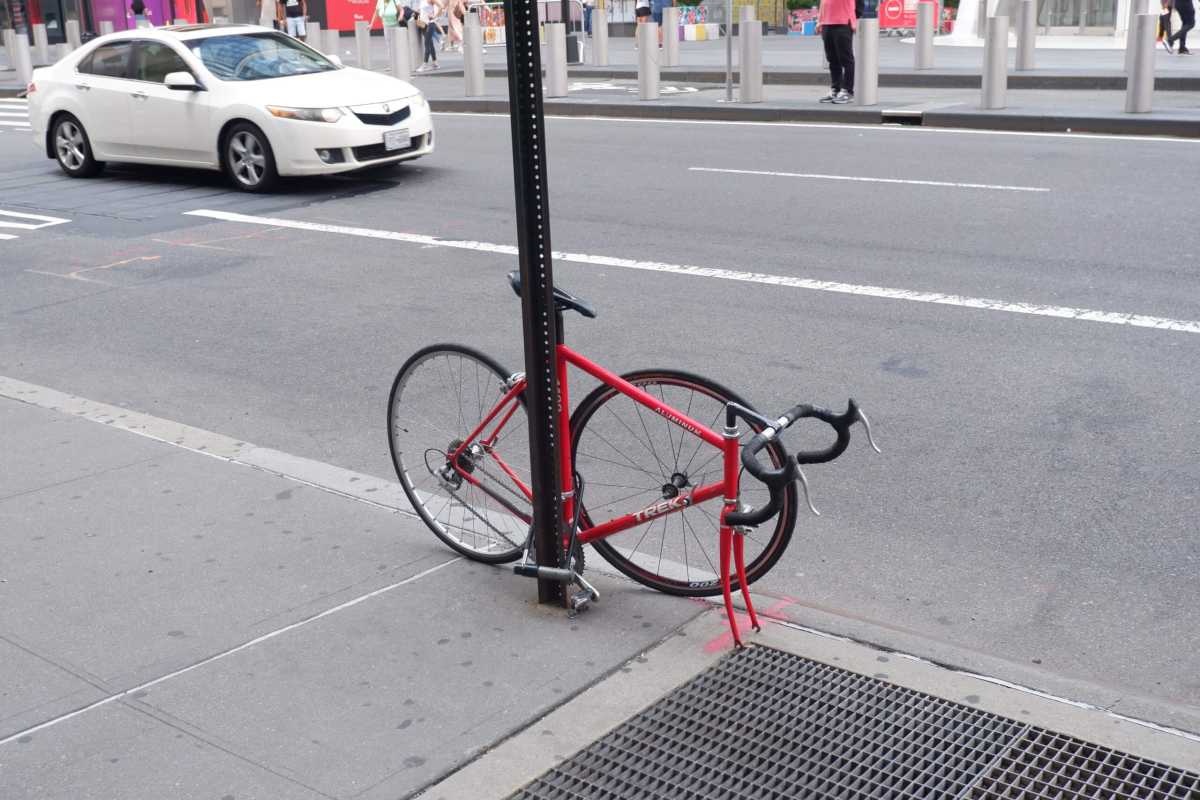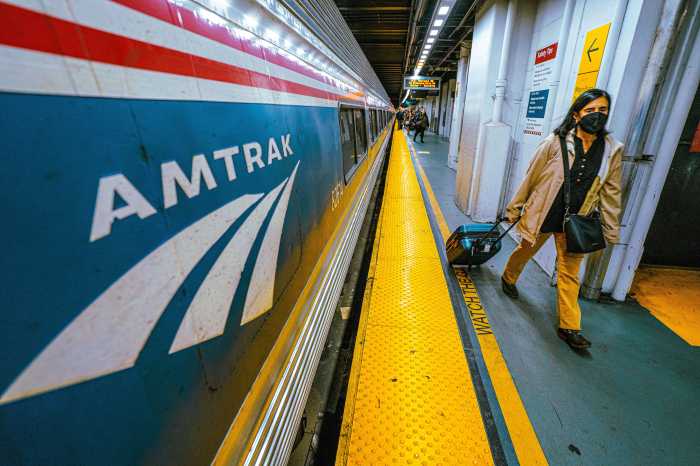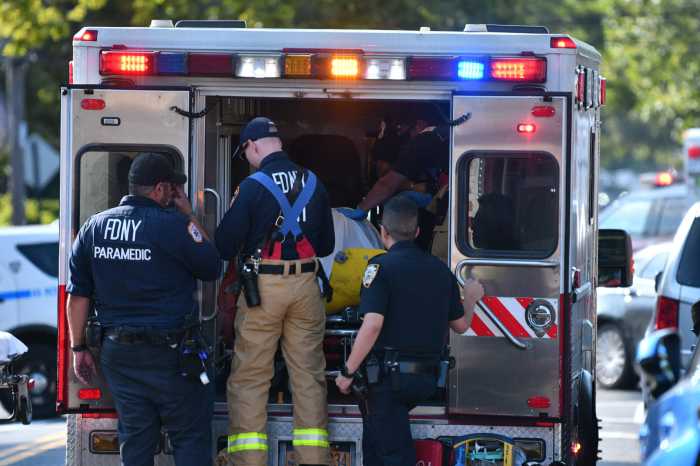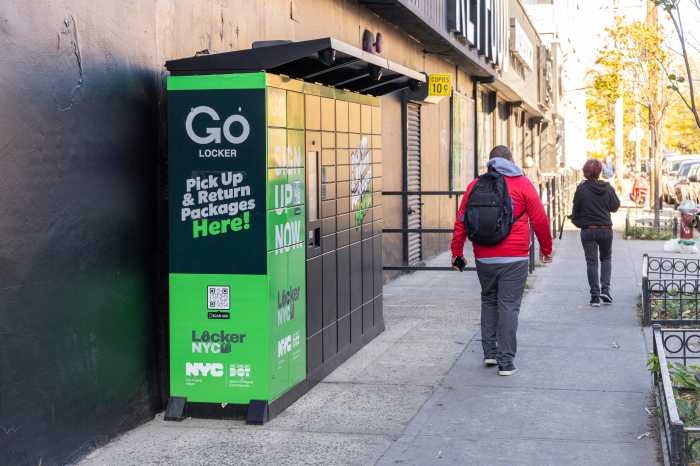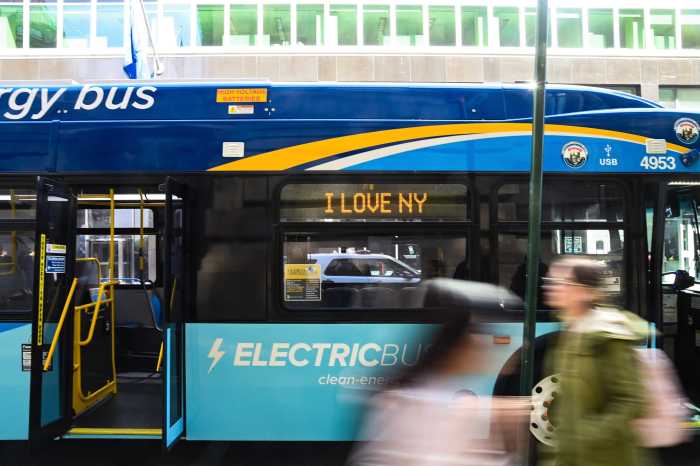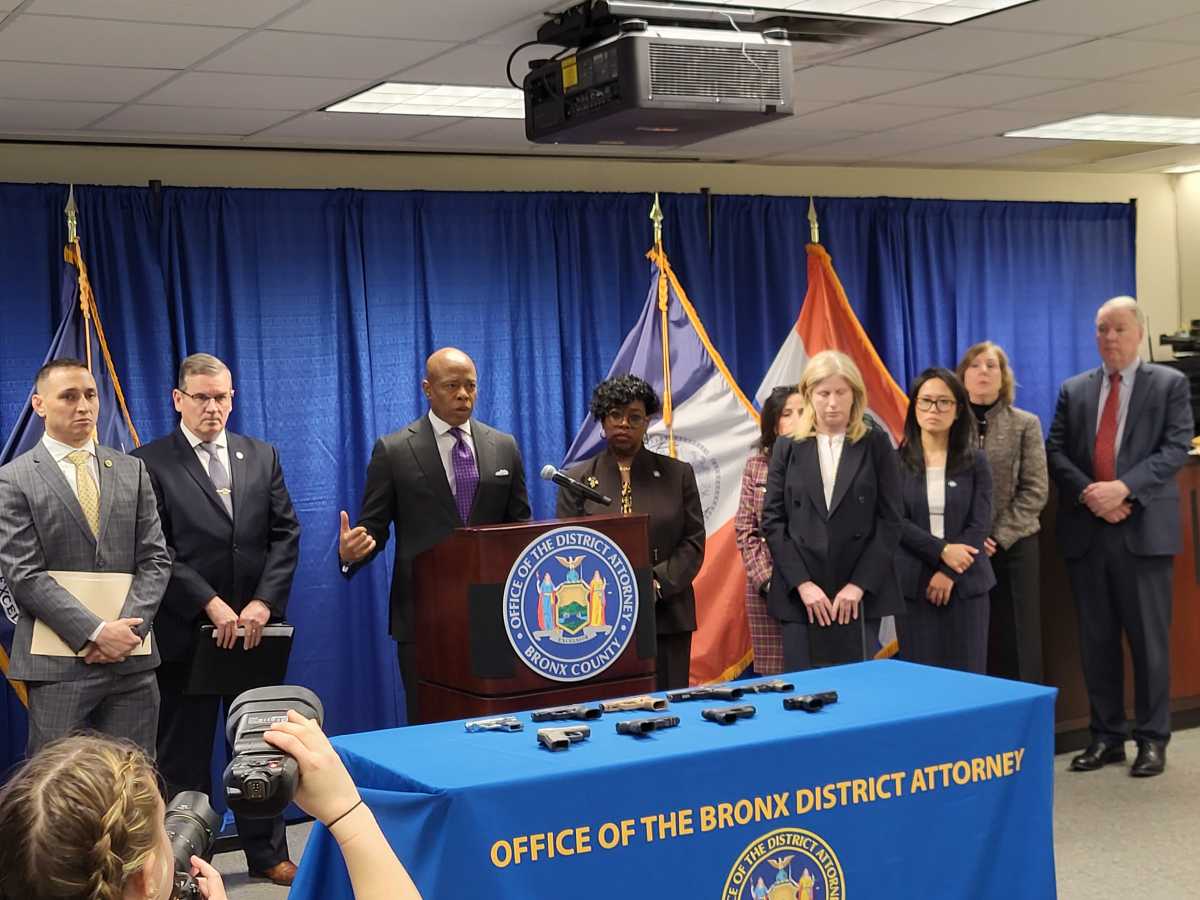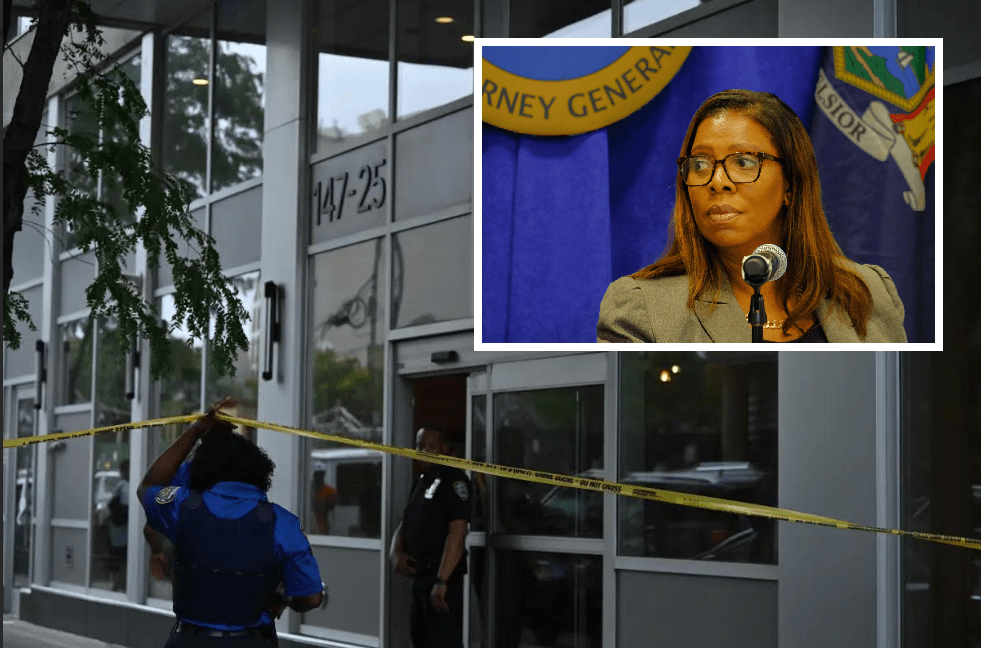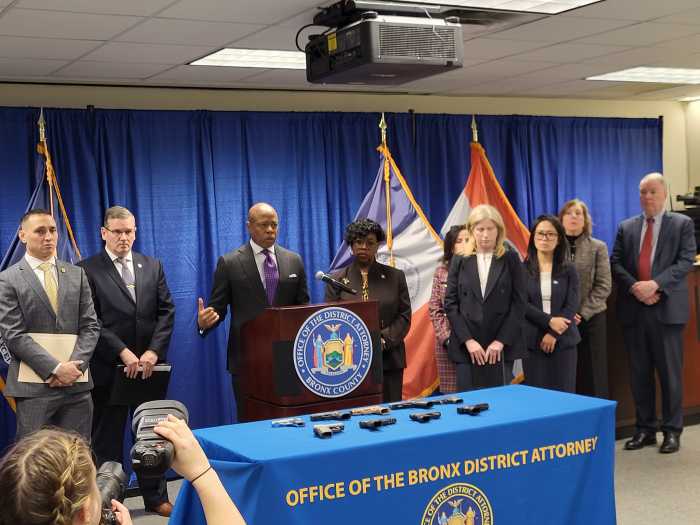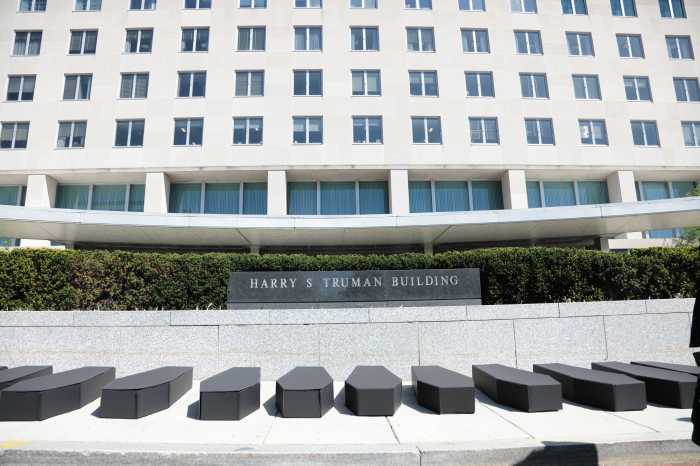Police officers in northern Queens confiscated a bunch of bicycles they say were illegally locked to street signs and boasted the seizure on social media Tuesday evening. But the city’s chief transportation official wouldn’t say whether bikers could lock their two-wheelers to the city-owned poles, a widespread practice that exists in a legal gray area, according to experts.
“I’m not going to comment on that until I have an opportunity to talk to the police and find out what actually happened here,” Department of Transportation Commissioner Hank Gutman told amNewYork Metro at an unrelated press conference Wednesday morning.
NYPD’s 107th Precinct sent out the now-deleted tweet with pictures of officers loading the bikes into the back of a truck after removing them from DOT sign posts near 141st Street and 78th Road in Flushing.
“Securing your bike to these signs is illegal and can be hazardous to pedestrians,” the tweet read.
Deleted but not forgotten pic.twitter.com/cVRaeR8WSJ
— BrandonWC (@BrandonWC) September 8, 2021
The post quickly drew backlash online, especially given the Police Department’s (and other government agencies’s) well-documented illegal parking in bike lanes and on sidewalks.
“THIS is the illegal sidewalk parking that the @NYPDnews chooses to enforce,” wrote placard corruption, an anonymous Twitter account dedicated to cataloguing drivers using government-issued placards to park illegally.
THIS is the illegal sidewalk parking that the @NYPDnews chooses to enforce? https://t.co/mLkTP6Jfz5
— placard corruption (@placardabuse) September 8, 2021
The cops did not cite a specific law to justify their actions, and the police press office did not respond for comment.
In the past, the city has cited Section 16-122(b) of the New York City Administrative Code, which makes it illegal for people to attach their property to a public street or place.
The law is rarely enforced for bikes locked to street signs, according to Jon Orcutt, a former DOT director and now an advocate with Bike New York.
“There’s really no harm in locking a bike to a typical DOT parking sign,” Orcutt said. “The thing the precinct did last night was utterly by surprise and without warning.”
A DOT rep did not respond to a follow-up question asking whether Gutman had spoken to officers at the 107 Precinct to “find out what actually happened here.”
In 2004, five cyclists sued the city after police sawed off their bike locks attached to street signs and parking meters in Manhattan, during a critical mass protest they took part in.
A lawyer for those plaintiffs said police have to give cyclists some sort of notification before they remove the bikes.
“Due process requires some kind of notice before or after,” Gideon Oliver Orion told amNewYork Metro. “If the cops just clip the locks off bikes there’s no notice.”
What’s more, the 114th Precinct over in Astoria previously said metal posts like stop signs were good places to lock up bikes.
The local precinct in my neighborhood just recommended locking bikes to signs?!!There has GOT to be a better use of your time. pic.twitter.com/4S9Sdf0pVb
— Kay Wall (@RocksOutBoxOut) September 8, 2021
”There’s a huge contradiction in what one hand is saying and what the other hand is doing,” said Oliver.
Due to the shortage of officially-sanctioned bike racks, cyclists routinely resort to locking their bikes to the signs, construction sheds, or other fences.
DOT has 30,490 bike racks across the city, according to spokesman Scott Gastel, and the agency wants to add 10,000 more by the end of 2022. They have installed 2,750 so far.
However, that will likely not meet the demand, as there were 1.6 million bike riders in the city in 2019 and that number has only increased since the COVID-19 pandemic bike boom.
The 107th Precinct’s Twitter account deleted the controversial post Wednesday, and a spokesman for Mayor Bill de Blasio pledged that cops won’t do that anymore.
“We’re on track to install 10,000 new bike parking spots by the end of next year, but that doesn’t mean fully-functioning bikes should be removed from the street. This practice won’t continue,” said Mitch Schwartz in a statement. “We embrace the mission of ending car culture, and that means supporting and encouraging cycling across the city.”
Schwartz added that the owners can get the bikes back by going to the precinct with a photo ID and proof of ownership, like a receipt, or a picture of the bike.
Read more: MTA to Connect Two Brooklyn Stations



